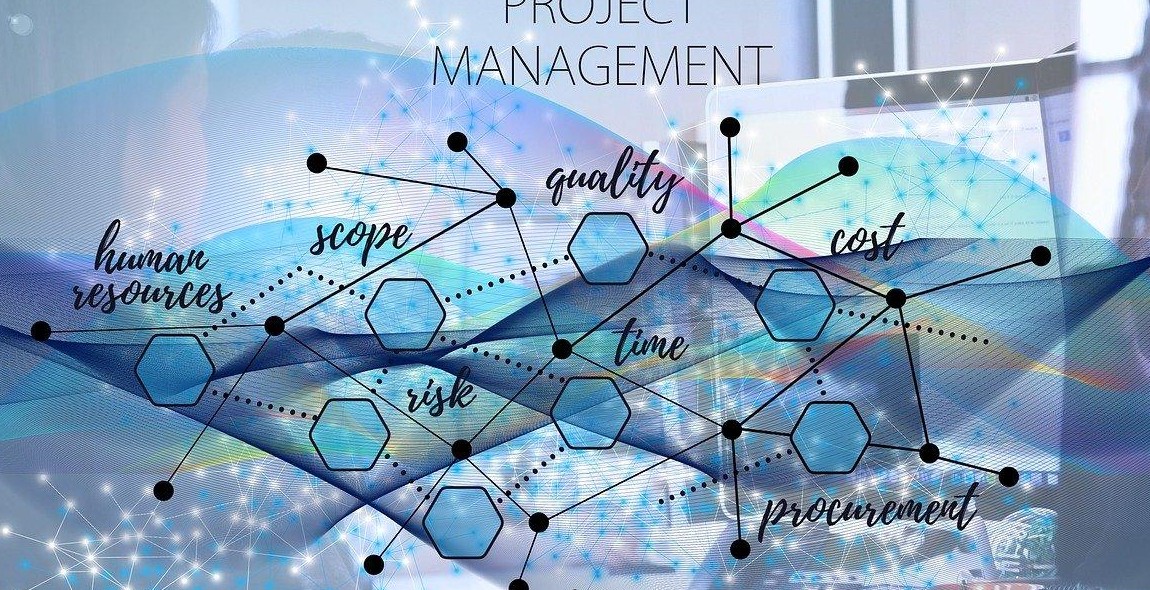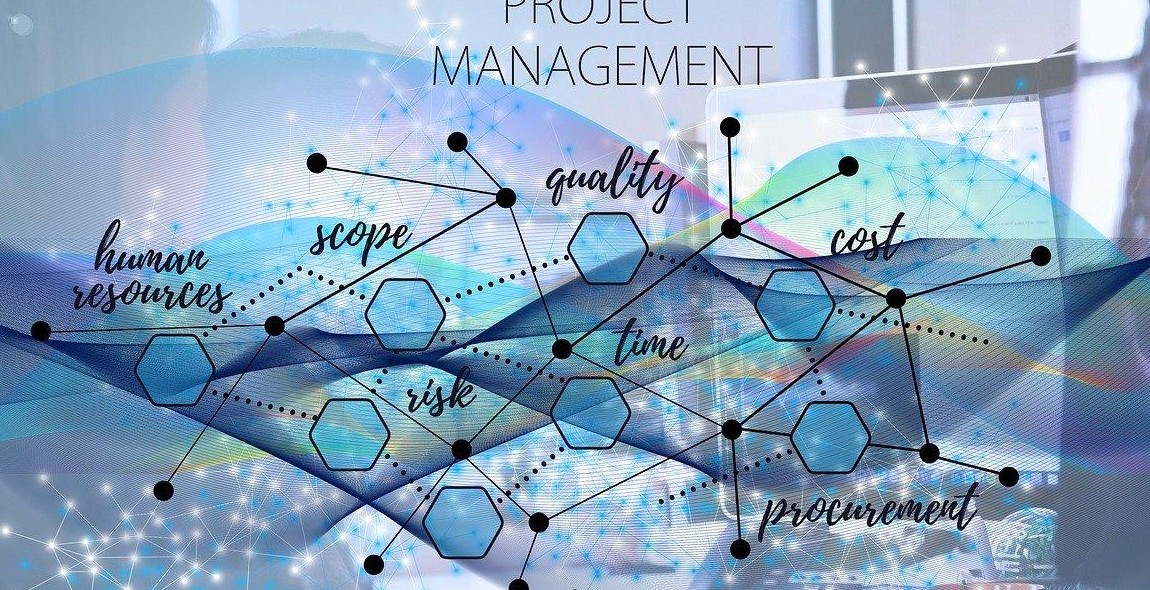Introduction: How to Develop Effective Project Management Skills
Project management is a vital skill that can help individuals and organizations achieve their goals efficiently. It involves planning, organizing, and controlling resources to achieve specific objectives within a specified time frame. Effective project management skills can help individuals and organizations to complete projects successfully, on time, and within budget.
Why Project Management Skills are Important
Project management skills are essential for individuals and organizations for several reasons:
- Improved efficiency: Effective project management skills help individuals and organizations to complete projects efficiently, with minimal waste of resources.
- Better communication: Project management skills help individuals and organizations to communicate effectively with team members, stakeholders, and clients.
- Increased productivity: Project management skills help individuals and organizations to increase productivity by setting clear goals, managing resources effectively, and monitoring progress regularly.
- Reduced risk: Effective project management skills help individuals and organizations to identify and manage risks effectively, reducing the likelihood of project failure.
In this article, we will discuss the essential skills and techniques required to develop effective project management skills. We will also provide tips and strategies to help individuals and organizations to improve their project management skills and achieve their goals efficiently.
Understanding Project Management
Project management is the process of planning, organizing, and overseeing the successful completion of a project. It involves the use of specific skills, tools, and techniques to ensure that project goals are met within the defined scope, budget, and timeline. Effective project management requires the ability to balance competing demands and adapt to changes in project scope and requirements.
Types of Project Management Methodologies
There are several project management methodologies that can be used to achieve project success. The choice of methodology depends on the nature and complexity of the project, as well as the organizational culture and resources available. Some of the most popular project management methodologies include:
- Waterfall: This methodology follows a sequential, linear approach to project management, with each phase completed before moving on to the next.
- Agile: This methodology emphasizes flexibility and adaptability, with frequent iterations and collaboration among team members.
- Scrum: This is a subset of the Agile methodology that involves short, iterative sprints to complete project tasks.
- Lean: This methodology focuses on minimizing waste and maximizing value, with a strong emphasis on continuous improvement.
Each methodology has its own unique strengths and weaknesses, and choosing the right one for your project can greatly impact its success. It is important to carefully evaluate each methodology and select the one that best aligns with your project goals and objectives.
| Methodology | Strengths | Weaknesses |
|---|---|---|
| Waterfall | Clear structure and defined phases Strict project control and management Well-suited for projects with stable requirements and limited changes |
Less adaptable to changes in project scope or requirements May result in delays due to sequential approach |
| Agile | Flexible and adaptable Encourages collaboration and teamwork Well-suited for complex or rapidly changing projects |
May require more resources and time Less structured approach may result in lack of control or oversight |
| Scrum | Encourages teamwork and collaboration Clear focus on completing specific tasks within short timeframes |
May require more frequent communication and coordination May not be well-suited for projects with unclear goals or requirements |
| Lean | Focus on continuous improvement and value Minimizes waste and inefficiencies |
May require significant changes to organizational culture and processes Less structured approach may result in lack of control or oversight |

Key Project Management Skills
Project management skills are essential for anyone who wants to be successful in their career. Whether you are a project manager or a team member, having the right skills can make all the difference in the success of a project. Here are five key project management skills that you should master:
Leadership Skills
Leadership skills are essential for project managers who need to lead a team to success. The ability to motivate and inspire team members, delegate tasks, and provide guidance when needed are all important aspects of leadership. A good project manager should be able to create a positive team culture and foster a collaborative environment that encourages everyone to work towards the same goal.
Communication Skills
Effective communication is key to successful project management. Project managers need to be able to communicate clearly and concisely with team members, stakeholders, and clients. This includes being able to listen actively, ask the right questions, and provide feedback in a constructive manner. A project manager should also be able to communicate project goals, timelines, and progress updates in a way that is easy for everyone to understand.
Time Management Skills
Time management is critical for project managers who need to keep projects on track and ensure that deadlines are met. This includes being able to prioritize tasks, create schedules, and manage resources effectively. A project manager should also be able to identify potential roadblocks and develop contingency plans to keep the project moving forward.
Risk Management Skills
Risk management is an important part of project management. A project manager should be able to identify potential risks and develop strategies to mitigate them. This includes being able to assess the impact of risks on the project and develop contingency plans to minimize the impact.
Budgeting and Financial Management Skills
Budgeting and financial management skills are essential for project managers who need to manage project budgets and ensure that projects are completed within budget. This includes being able to create and manage budgets, track expenses, and make financial decisions that are in the best interest of the project. A project manager should also be able to communicate financial information to stakeholders and clients in a way that is clear and easy to understand.
| Key Skills | Description |
|---|---|
| Leadership | Motivating and guiding team members towards a common goal |
| Communication | Effective communication with team members, stakeholders, and clients |
| Time Management | Prioritizing tasks, creating schedules, and managing resources effectively |
| Risk Management | Identifying potential risks and developing strategies to mitigate them |
| Budgeting and Financial Management | Managing project budgets and making financial decisions in the best interest of the project |

Developing Project Management Skills
Project management skills are essential for any professional looking to advance their career in today’s business world. Effective project management skills can lead to successful project completion, increased productivity, and improved team collaboration. Here are three ways to develop effective project management skills:
1. Training and Education
One of the best ways to develop project management skills is through formal training and education. Many universities and colleges offer courses and programs in project management, which can provide a solid foundation in project management principles and best practices. Online courses and certifications, such as the Project Management Professional (PMP) certification, also offer a convenient way to gain knowledge and skills in project management.
2. Mentoring and Coaching
Mentoring and coaching can also be effective ways to develop project management skills. Finding a mentor who is experienced in project management can provide valuable guidance and advice, as well as help you navigate the challenges of managing projects. Coaching can also help you identify areas for improvement and develop strategies for overcoming obstacles.
3. Practical Experience
Perhaps the most important way to develop project management skills is through practical experience. Working on projects, whether as a team member or project manager, provides opportunities to apply project management principles and learn from successes and failures. Taking on increasingly complex projects can also help you develop new skills and gain confidence in your abilities.
In conclusion, developing effective project management skills requires a combination of formal training, mentoring and coaching, and practical experience. By investing in these areas, professionals can improve their project management skills and advance their careers.

Tools and Techniques for Effective Project Management
Effective project management involves the use of various tools and techniques to ensure that projects are completed on time, within budget, and to the satisfaction of stakeholders. Some of the most commonly used tools and techniques for project management include:
Project Management Software
Project management software is a digital tool used to plan, organize, and manage projects. It allows project managers to create project schedules, assign tasks, and track progress in real-time. Some popular project management software includes Asana, Trello, and Jira.
Gantt Charts and Work Breakdown Structures
Gantt charts and work breakdown structures are visual tools used to plan and organize projects. Gantt charts provide a timeline view of project tasks and their dependencies, while work breakdown structures break down a project into smaller, more manageable tasks. These tools help project managers to identify potential bottlenecks and ensure that all tasks are completed in a timely manner.
Agile Methodologies
Agile methodologies are an approach to project management that emphasizes flexibility and adaptability. It involves breaking down a project into smaller, more manageable chunks and continuously iterating on them. This allows project teams to respond quickly to changes in requirements or priorities.
Lean Six Sigma
Lean Six Sigma is a process improvement methodology that combines the principles of Lean manufacturing and Six Sigma. It is used to identify and eliminate waste in a project, thereby improving efficiency and reducing costs. This methodology involves identifying areas of improvement, analyzing data, and implementing solutions to optimize project processes.
| Tool/Technique | Advantages | Disadvantages |
|---|---|---|
| Project management software | Real-time collaboration, task tracking, and reporting | Costly and may require training |
| Gantt charts and work breakdown structures | Clear visualization of project timelines and tasks | Time-consuming to create and update |
| Agile methodologies | Flexibility and adaptability to changing requirements | May require more frequent communication and collaboration |
| Lean Six Sigma | Efficiency and cost savings through waste reduction | May require specialized training and expertise |

Challenges in Project Management
Project management is a complex process that requires a variety of skills and expertise in order to ensure successful completion. Some of the main challenges that project managers face include:
Managing Conflicts
Conflicts are inevitable in any project, and project managers must be able to manage them effectively. This involves identifying the source of the conflict, understanding the different perspectives of those involved, and working towards a mutually beneficial solution.
Dealing with Scope Creep
Scope creep occurs when the project’s goals and objectives expand beyond the initial plan. This can lead to delays, increased costs, and decreased quality. Project managers must be able to identify and manage scope creep in order to keep the project on track.
Managing Remote Teams
In today’s global economy, it is common for project teams to be spread out across different locations. This can create communication and coordination challenges. Project managers must be able to effectively manage remote teams by using technology and communication tools to keep everyone on the same page.
Dealing with Uncertainty and Change
Projects can be unpredictable, and changes can occur at any time. Project managers must be able to adapt to these changes and make decisions quickly in order to keep the project moving forward.
Overall, project management requires a range of skills and expertise in order to overcome the challenges that arise during the project lifecycle. By understanding and preparing for these challenges, project managers can develop effective project management skills and ensure successful project completion.

Conclusion
Developing effective project management skills is essential for any individual or organization that seeks to achieve success in their projects. The key points to consider when developing these skills include:
- Defining project goals and objectives: Before embarking on a project, it is important to clearly define the goals and objectives that need to be achieved. This helps to guide the project team and ensure that everyone is working towards the same end result.
- Creating a project plan: A well-structured project plan is necessary to ensure that the project is completed within the specified timeframe and budget. The plan should include timelines, resource allocation, and risk management strategies.
- Effective communication: Communication is key to ensuring that everyone involved in the project is on the same page. This includes regular status updates, team meetings, and stakeholder communication.
- Team management: A project manager must be able to effectively manage their team, including delegating tasks, providing support and feedback, and resolving conflicts.
- Continuous improvement: Finally, a project manager must always seek ways to improve their skills and processes. This includes regularly evaluating project performance and implementing changes to improve future projects.
By following these key points, individuals and organizations can develop effective project management skills that will help them achieve success in their projects. Remember, project management is a constantly evolving field, and it is important to stay up-to-date with the latest trends and best practices.
